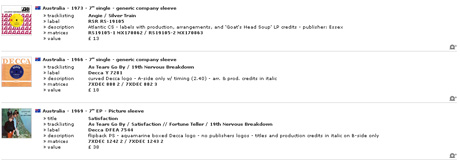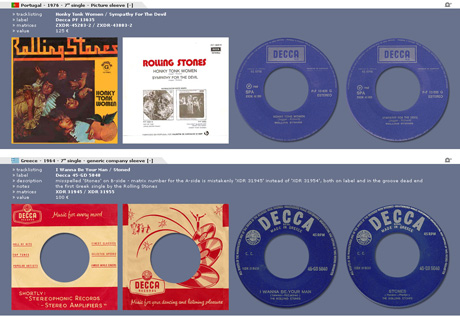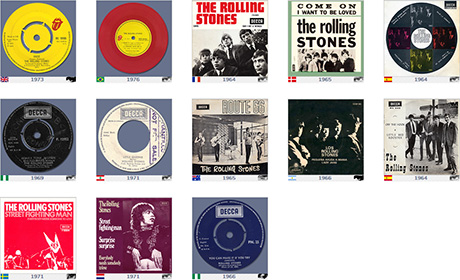While visitors can only browse 5% of the site - one country, one song - members have full access to all countries discographies, song by song browsing, price guide, cross-countries links and references, bootleg discography and more [content is being almost daily updated], notably the ability to compile, organize and download their personal collection or wants list.
Stones7.com offers the most complete singles and EPs worldwide discography of the Rolling Stones known in the world today and has been a reference and a collectors tool since its first version in 2000.
Find more about it here.
Note: except for an exclusive Japanese discography book, book projects have been abandonned as no book could contain the mass of info, details and uptodate accuracy offered here [besides unrealistic production costs & environment crime such project would mean]
Members' benefits
- all countries complete discographies [5000+ entries]
- in-depth reviews for each hit song since 1963
- accurate price guide [near mint estimation value for each record]
- bootlegs detailed discography
- advanced search engine [including country, title, catalogue or matrices numbers, labels, years, or description details]
- full details for each record [more pictures, matrices numbers, etc]
- build up and download a personal collection [grade, price, add notes] or want list
- build up, share and download extra lists [5 lists of 100 records]
- 'the 10 last entries' panel updated in real time
- your last viewed items reminded
- the sheet music worldwide catalogue [nearly 300 entries]
- customize your landing page, currency, number of items by page, sorting, modes of display
 
|

|

|
 
|

Standard visitor's features
- this week's country's discography
- the song of the day
- country and title only based search engine
- results display in single text & pix
 view mode
view mode - limited description of records [incl. 1 picture only]
- limited display of 25 items in search results

A little contribution of 18€ or $18 is asked for one year membership, payable via Paypal. For the price of a museum ticket, a member helps to keep the site alive and up-to-date with harsh collectors information.




